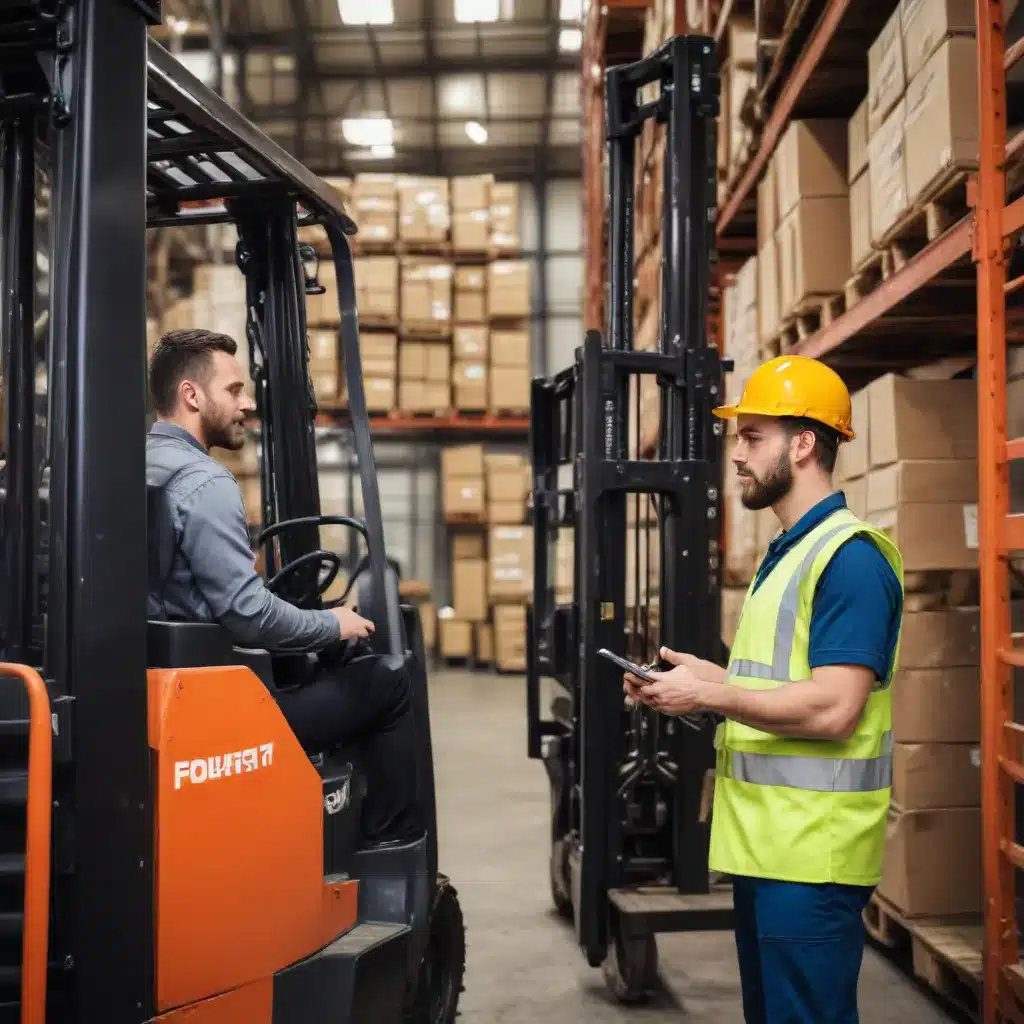
The Crucial Role of Forklift Operators in Efficient Warehouse Operations
In the fast-paced world of warehousing and logistics, forklift operators serve as the backbone of material handling operations. These skilled professionals are responsible for the seamless movement of goods, ensuring that inventory flows smoothly and productivity remains high. However, the role of a forklift operator extends far beyond simply operating the machinery – it requires a unique set of abilities that go beyond technical proficiency.
One of the most critical skills for forklift operators is effective communication and coordination. In a bustling warehouse environment, where multiple teams and machinery are in constant motion, clear and efficient communication becomes paramount for maintaining safety and optimizing workflow. Forklift operators must not only be adept at maneuvering their vehicles but also possess the interpersonal skills to work cohesively with colleagues, supervisors, and other personnel.
Mastering the Art of Communication
Effective communication is a core competency for forklift operators, as it directly impacts both workplace safety and operational efficiency. Forklift operators must be able to:
-
Convey Information Clearly: Forklift operators need to communicate their intentions, directions, and any potential hazards or concerns quickly and concisely. This ensures that everyone in the vicinity is aware of the forklift’s movements, reducing the risk of collisions or accidents.
-
Listen Attentively: Forklift operators must be skilled active listeners, able to comprehend instructions, feedback, and warnings from co-workers. This allows them to respond appropriately and take necessary actions to maintain a safe working environment.
-
Collaborate Effectively: Forklift operators often work as part of a larger team, coordinating their activities with other material handling personnel, such as warehouse workers, loaders, and inventory specialists. Effective collaboration ensures that tasks are completed efficiently and that potential conflicts or logistical issues are resolved promptly.
-
Adhere to Safety Protocols: Clear communication is essential for ensuring that forklift operators strictly follow established safety guidelines and procedures. By communicating openly about potential hazards, operators can work together to mitigate risks and protect the well-being of themselves and their colleagues.
Enhancing Coordination through Teamwork
In addition to communication skills, forklift operators must excel at coordination, working seamlessly with their teammates to optimize warehouse operations. This involves:
-
Synchronizing Movements: Forklift operators must be able to coordinate their movements with other material handling equipment and personnel, navigating tight spaces and busy aisles without disrupting the flow of operations.
-
Anticipating Needs: Experienced forklift operators can anticipate the needs of their co-workers, positioning materials and equipment in strategic locations to support the overall workflow. This level of coordination reduces downtime and enhances productivity.
-
Providing Assistance: Forklift operators should be willing to lend a hand to their colleagues when needed, whether it’s helping to load or unload a truck or assisting with inventory management tasks. This spirit of teamwork fosters a positive work environment and builds trust among employees.
-
Continuous Improvement: Forklift operators should also be open to feedback and suggestions from their teammates, constantly seeking ways to improve their coordination and enhance the overall efficiency of warehouse operations.
Fostering a Culture of Safety and Efficiency
Effective communication and coordination among forklift operators are not only essential for workplace safety but also contribute to the overall efficiency and productivity of warehousing and logistics operations. By cultivating a culture of teamwork and collaboration, organizations can:
-
Minimize Accidents and Injuries: Clear communication and coordination among forklift operators help prevent collisions, tip-overs, and other accidents that can lead to injuries and downtime.
-
Improve Inventory Management: Seamless coordination between forklift operators and other warehouse personnel ensures that materials are moved and stored in an organized and efficient manner, facilitating accurate inventory tracking and reducing the risk of lost or misplaced items.
-
Enhance Workflow Optimization: Forklift operators who work well together can identify and implement process improvements, streamlining workflows and reducing bottlenecks in the warehouse.
-
Foster a Positive Work Environment: A culture of open communication and collaboration among forklift operators and their colleagues can lead to improved job satisfaction, increased employee retention, and a stronger sense of camaraderie within the organization.
Investing in Comprehensive Training and Development
To cultivate a workforce of skilled and collaborative forklift operators, organizations must prioritize comprehensive training and ongoing development programs. This includes:
-
OSHA-Approved Certification: Ensuring that all forklift operators have completed the required OSHA training and obtained the necessary certifications to operate various types of forklifts safely.
-
Continuous Skills Development: Providing regular training and skill-building workshops to help forklift operators enhance their technical proficiency, communication abilities, and problem-solving skills.
-
Mentorship Programs: Pairing experienced forklift operators with new or less experienced team members to foster knowledge sharing, coaching, and the development of essential workplace skills.
-
Performance Feedback and Evaluation: Regularly assessing forklift operators’ performance, providing constructive feedback, and identifying areas for improvement to support their professional growth and the overall success of the organization.
By investing in the development of their forklift operators’ communication and coordination skills, organizations can create a culture of safety, efficiency, and teamwork that drives lasting success in the competitive world of warehousing and logistics.
Conclusion
Forklift operators play a critical role in the seamless operation of warehouses and logistics facilities. While technical proficiency in operating machinery is essential, the ability to communicate effectively and coordinate with colleagues is what truly sets apart the top-performing forklift operators. By fostering a culture of open communication, collaborative problem-solving, and continuous improvement, organizations can unlock new levels of productivity, safety, and employee satisfaction. As the industry continues to evolve, the importance of forklift operator communication and coordination will only grow, making it a key focus area for organizations seeking to stay ahead of the curve.
For more insights and practical tips on forklift operations, maintenance, and safety, be sure to explore the comprehensive resources available on Forklift Reviews. Our team of industry experts is dedicated to providing the latest information and best practices to help you optimize your warehousing and logistics operations.

